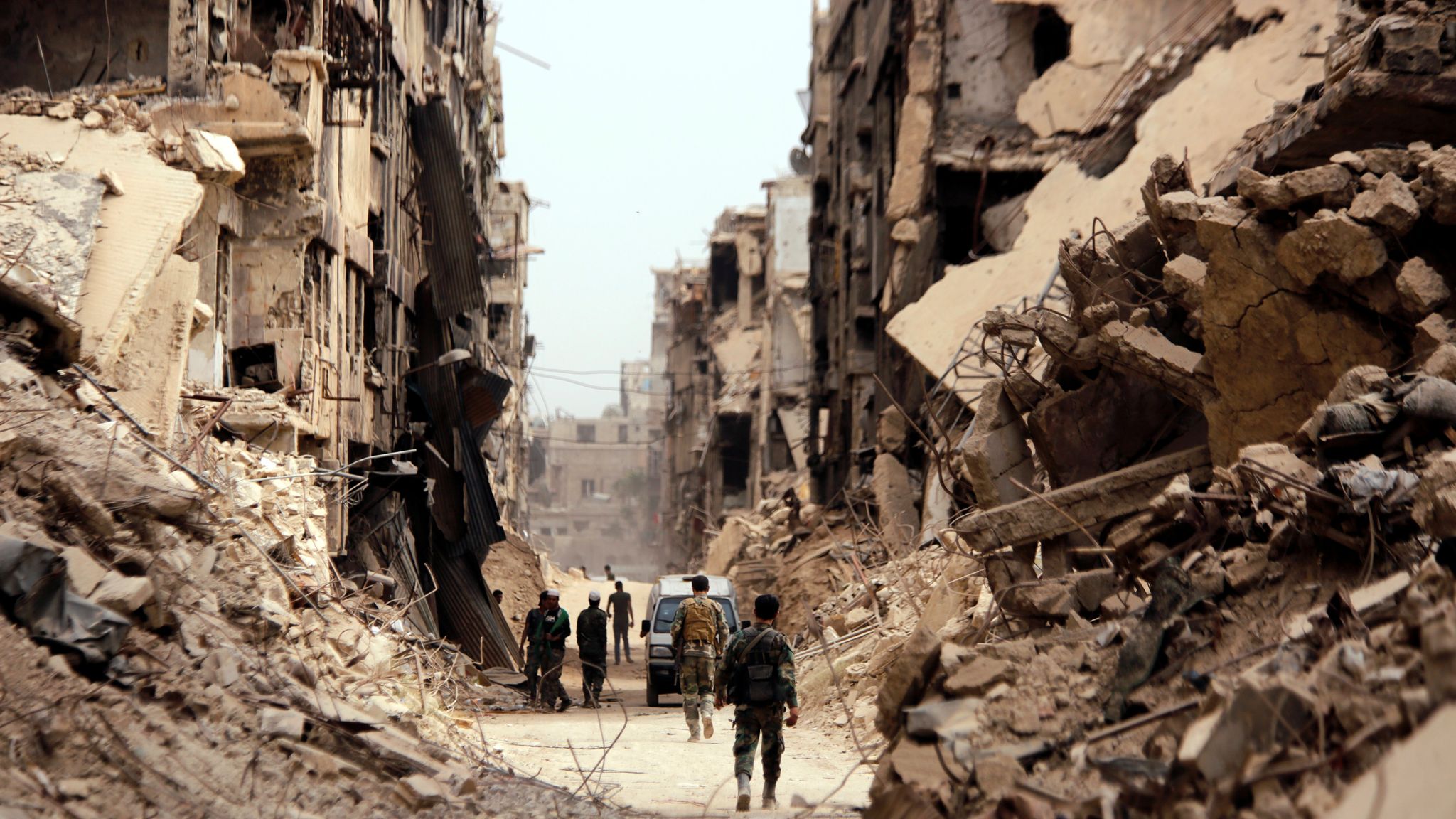
Assad or We Burn the Country: How One Family’s Lust for Power Destroyed Syria
Introduction
Bashar al-Assad’s unwavering grip on power in Syria has come at the cost of immense human suffering and the near complete destruction of the country. The Syrian civil war, which began in 2011 as a peaceful uprising against Assad’s authoritarian rule, has escalated into a brutal and protracted conflict that has claimed the lives of hundreds of thousands of people and displaced millions more. This conflict is not merely a power struggle between Assad and the opposition, but a complex web of sectarian, geopolitical, and regional interests that have converged to fuel the devastation.
The Assad Dynasty: A Legacy of Repression
The Assad family’s rule in Syria dates back to the 1970s, when Bashar’s father, Hafez al-Assad, seized power in a military coup. Hafez was a ruthless dictator who suppressed dissent with an iron fist. He presided over a regime characterized by human rights abuses, corruption, and economic mismanagement. Bashar, who inherited the presidency from his father in 2000, initially presented himself as a reformer but quickly followed in his father’s footsteps. He suppressed political opposition, rigged elections, and stifled freedom of expression.
The Uprising and Descent into Civil War
In 2011, the Arab Spring uprisings spread to Syria. Inspired by the success of revolutions in Tunisia and Egypt, Syrians took to the streets to demand democratic reforms. Assad’s regime responded with violence, killing protesters and arresting activists. The peaceful uprising escalated into an armed conflict as opposition groups, including the Free Syrian Army, emerged to challenge Assad’s rule.
The conflict quickly became sectarianized, with Assad’s Alawite minority regime pitted against a largely Sunni Muslim opposition. The conflict drew in regional and international actors, with Iran and Russia backing Assad, and Turkey, Saudi Arabia, and the United States supporting the opposition. The war has been marked by widespread human rights abuses, including the use of chemical weapons and the indiscriminate bombing of civilian areas.
The Role of Regional and International Actors
The Syrian civil war has become a proxy conflict for regional and international powers. Iran, Russia, and Hezbollah have provided military and financial support to Assad, while Turkey, Saudi Arabia, and the United States have backed the opposition. The involvement of these external actors has prolonged the conflict and complicated efforts to find a political solution.
The United States, under the Obama administration, adopted a policy of “strategic patience,” hoping that Assad would eventually be defeated by the opposition. However, the entry of Russia into the war in 2015 turned the tide in Assad’s favor. Russia’s military intervention, coupled with Iran’s support, has helped Assad regain control over large parts of the country.
The Humanitarian Crisis
The Syrian civil war has created a massive humanitarian crisis. Millions of Syrians have been displaced from their homes, either within the country or as refugees in neighboring countries. The war has destroyed infrastructure, disrupted education and healthcare systems, and created widespread food insecurity. The United Nations estimates that over 13 million Syrians are in need of humanitarian assistance.
The Future of Syria
The future of Syria is uncertain. Assad has regained control over most of the country, but the conflict is far from over. Rebel groups continue to hold territory in the northwest, and the Islamic State group still poses a threat. International efforts to find a political solution have failed, and there is no clear path to peace.
The war has left Syria a shattered country, with its economy in ruins, its infrastructure destroyed, and its people traumatized. The reconstruction of Syria will be a long and difficult process, and the country will need international support to rebuild and heal.
Conclusion:
The Syrian civil war has been a tragedy for the Syrian people. The Assad family’s lust for power has led to the destruction of their country and the deaths of hundreds of thousands of their citizens. The conflict has created a humanitarian crisis, displaced millions of people, and left the country in ruins. The future of Syria is uncertain, but it is clear that the country will need international support to rebuild and heal.
The war in Syria is a cautionary tale of the dangers of authoritarianism, sectarianism, and geopolitical rivalries. It is a reminder that the pursuit of absolute power can lead to immense suffering and destruction.






